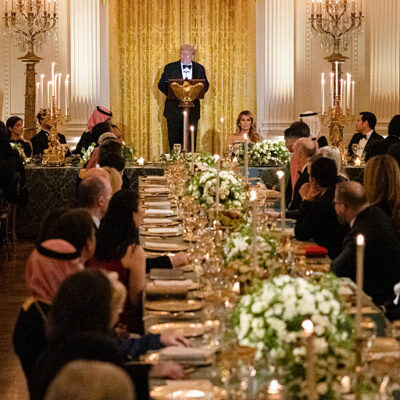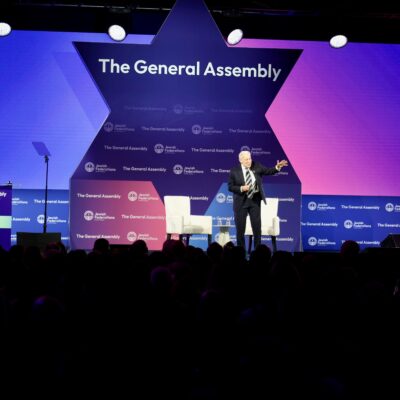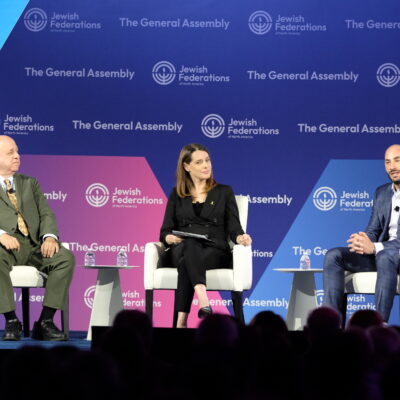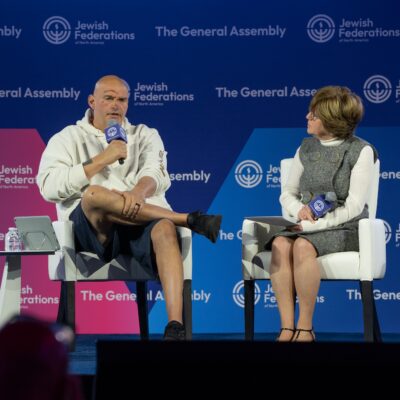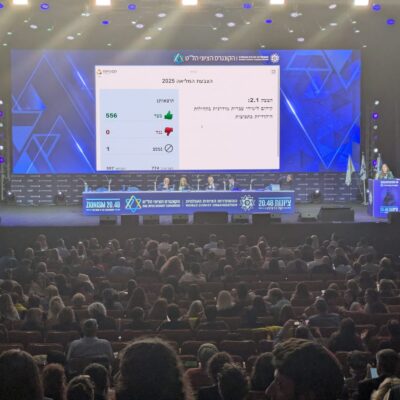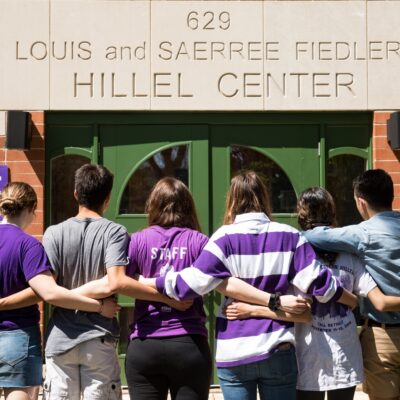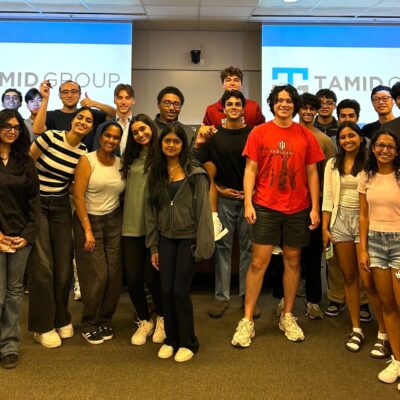Opinion
FEELING OPTIMISTIC
Moderate consensus won at the WZC. Now Diaspora Jews must follow through
Holding the center in a world of extremes can feel lonely these days, especially for rabbis and leaders in the Conservative/Masorti movement. But as a representative from our movement’s MERCAZ Olami delegation at the recent World Zionist Congress, I found a level of optimism about the future of Israel and the Jewish people that I haven’t felt in a long time. Over several days, potential allies from both the right and the left — often unexpectedly — reached across ideological lines to find common ground with us.
Disagreements at the Congress can sometimes be loud and chaotic, but make no mistake: through this gathering of global Jewry, delegates from Israel and around the world sent the message that they believe in a State of Israel based on the values of democracy, pluralism and accountability. We oppose policies that deny others their human dignity and lead to a theocracy based on dangerous messianism and racist nationalism.
This World Zionist Congress was a powerful check-in on world Jewry’s conscience. Among other issues, the resolutions that were approved insisted on the draft of Haredim into the IDF or other forms of National Service, the establishment of an October 7 State Commission of Inquiry, equal status for the egalitarian Kotel, a rejection of sovereignty over the Temple Mount and opposition to settlement in Gaza.
And despite the fact that the official delegations were almost evenly divided between left and right, these resolutions didn’t just squeak by. They passed with wide majorities. They were approved by representatives who hold definite political views but also yearn for a “moderate consensus,” one that sees the extremism of the current Israeli government as a threat not only to the relationship between Israel and Diaspora communities but to Israel itself.
Furthermore, the coalition agreement that resulted from an extended and passionate negotiation also rejected extremism and insisted on inclusion. The agreement balances representation and funding across a wide range of political and religious perspectives for the National Institutions (the WZO, the Jewish Agency for Israel, KKL/JNF – Keren Kayemet L’Yisrael and Keren HaYesod), with power sharing and equal funding, while rejecting political cronyism (e.g. a last minute bid for a position for Yair Netanyahu) or nationalist racism (Itamar Ben Gvir’s representatives).
Now we’ll work towards implementing it with the accountability and transparency that many, both in Israel and abroad, expect.
The past two-plus years have again proven that the fates of Israeli and Diaspora Jews are intertwined. The rise of antisemitism and the reputational and security challenges that Israel faces are something that we can only address together. What was once a “moral imperative” to strengthen a relationship based on shared vision and Jewish values is now a strategic one. And through the Congress, global Jewry is sending a message: Extremists are leading Israel in the wrong direction. And we’re worried.
Hundreds of Diaspora leaders have now returned from the Congress to their home communities, but we understand that we can’t just stay quiet and come back in five years for the next Congress to weigh in again. We must continue to offer loving critique and bolster our partners in Israel who share our values and our vision for a secure, democratic and religiously pluralistic Jewish homeland. If Israeli political paralysis emboldens the extremists, then it falls on the Diaspora to be its conscience. I am more convinced than ever that we are poised to do just that, in collaboration and cooperation with fellow Diaspora Jews across the spectrum.
If I learned one thing through my time at the World Zionist Congress, it’s that the future of the Jewish people depends on it. Over the next five years, let’s get to work.
Rabbi Jacob Blumenthal is the CEO of the Rabbinical Assembly and the CEO of United Synagogue of Conservative Judaism.

 Add EJP on Google
Add EJP on Google